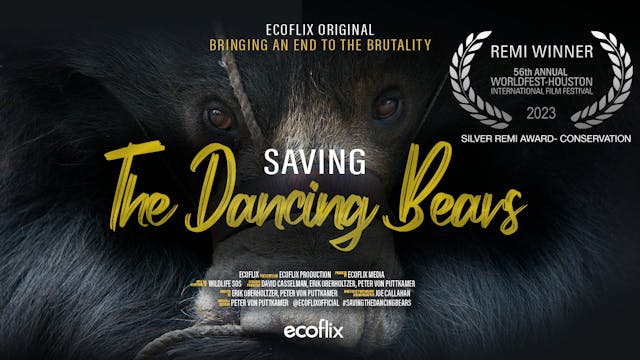Saving Baby Bani
Editor's Picks
•
Documentary, 28-Mar-2025
Saving Baby Bani tells the remarkable story of a young elephant calf, Bani, who is critically injured after a tragic train collision in Uttarakhand, India. At just nine months old, Bani loses her mother and the ability to walk, facing a grim fight for survival. Rescued by Wildlife SOS, Bani receives specialized care at their Elephant Hospital, where a dedicated team provides life-saving treatments like physiotherapy, hydrotherapy, and advanced therapies. Over months, Bani shows incredible resilience, slowly regaining strength and mobility.
This documentary is a testament to the incredible work of Wildlife SOS, an NGO dedicated to rescuing and rehabilitating wildlife across India. With a focus on elephants, they have established multiple care centers and treatment units, offering vital support to injured and orphaned animals. Produced for ECOFLIX, the film is part of an ongoing series profiling the extraordinary efforts of Wildlife SOS, showcasing their tireless work through several award-winning films that raise awareness for wildlife conservation.
Up Next in Editor's Picks
-
Guardian of the Sea Lions
Guardian of the Sea Lions" is a film centred around Janet Ledingham, an 83 year-old woman who voluntarily collects data on sea lions, a nationally vulnerable species, for the New Zealand Sea Lion Trust. It is both informative and inspiring as we learn about Janet’s passion for sea lions and her r...
-
Saving the Dancing Bears
For over 400 years, in India, the rare Sloth Bear was targeted for human exploitation…first for the emperors, then as roadside entertainment for villagers and tourists who paid to watch the bears jump, conditioned after years of abuse by trainers.
Given the ongoing legacy of cruelty, two indivi...
-
Rattled
The Orianne Society has determined one apex predator to be of vital importance to the Appalachian region, yet it is facing tremendous challenges towards its conservation. It is an animal that we have felt threatened by, and have demonized for centuries, compromising our own capacity for understan...



